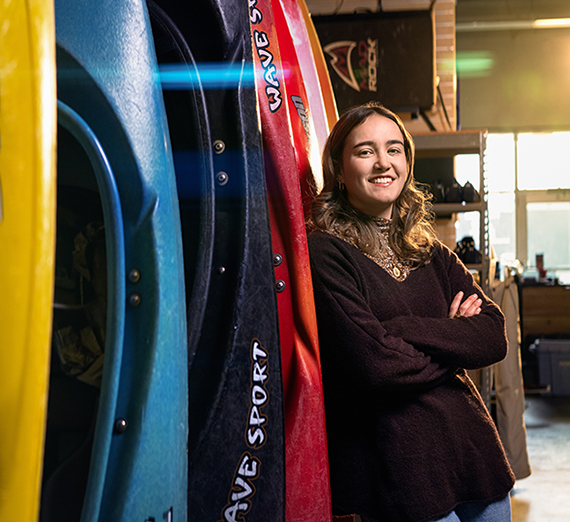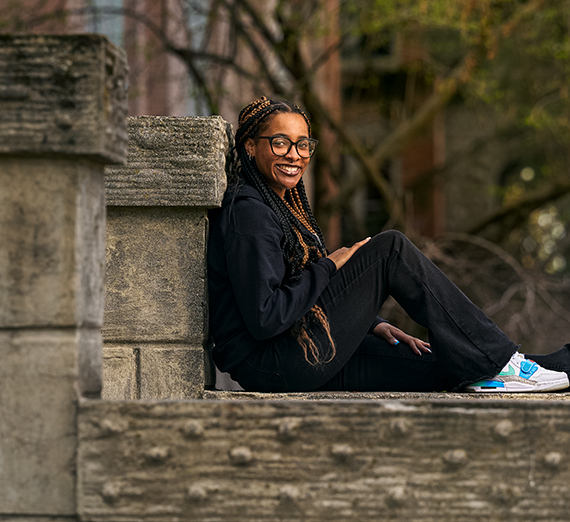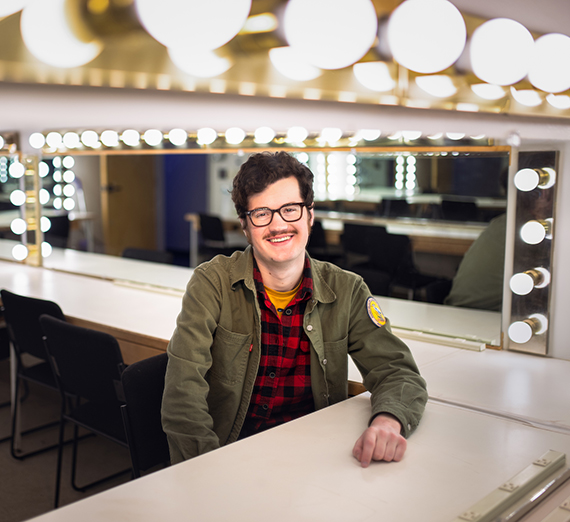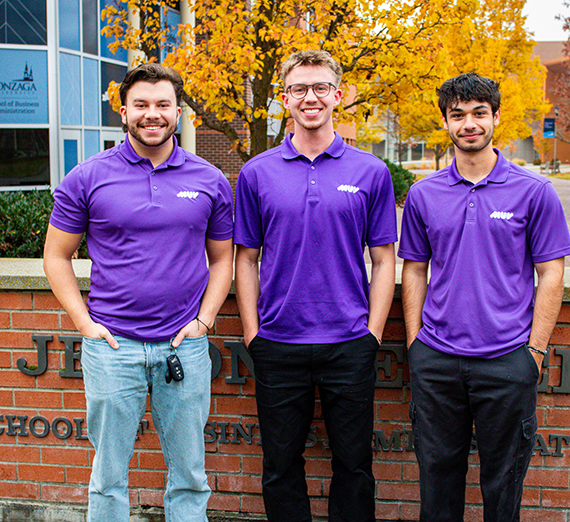Senior Spotlight: Antoine Herrbach’s Making a World of Difference

This piece is part of our Senior Stories series, in which we highlight GU students throughout the year.
Name: Antoine Herrbach
Studies: Political Science, History and Economics
Hometown: Sammamish, Washington
Gonzaga senior Antoine Herrbach added quite an impressive achievement to his resume this past fall: Rhodes Scholarship finalist. Herrbach missed the actual award, but he says that he is happy to have made it that far, as he was among the 2,500 plus students who initially began the application process—an admirable accomplishment.
The Rhodes Scholarship is the oldest international scholarship program in the world, with a list of noteworthy past scholars: former U.S. president Bill Clinton, Fulbright Program founder James William Fulbright, former National Security Advisor and UN Ambassador Susan Rice. Award recipients, known as Rhodes Scholars, study a full-time postgraduate course at Oxford University in the United Kingdom. The application process requires first that students be endorsed by their college or university. Then the strongest applicants in each of 16 U.S. districts are invited to interview and two are selected for the award. This year, 240 applicants from 90 colleges and universities reached the interview stage. Herrbach competed against other finalists from Alaska, Idaho, Montana, Oregon and Washington.
Herrbach initially decided to apply this fall with only 12 days left to complete the application. “I spent the whole weekend drafting a personal statement...I needed a minimum of five references, so I contacted loads of professors and bosses and hoped that they would get back to me in time,” Herrbach says.
“My career goal is to work at the United Nations High Commissioner for Refugees in Geneva, advocating for and creating policy that best supports refugees,” Herrbach says. If he had been selected for the Rhodes Scholar program, he would have studied Refugee & Forced Migration and Global Governance & Diplomacy at Oxford.
Herrbach points to his passion for immigration as the start of his interest in refugee advocacy. Born in France, Herrbach moved to the U.S. at five years old—an experience that he says impacted his life.
At Gonzaga Herrbach joined Model UN where he learned about refugee struggles and attempted solutions. Herrbach now serves as the Head Delegate at Gonzaga and says that Model UN is “an amazing opportunity to cultivate [a] passion for international issues, build community on campus, and meet people from all over the world.”
Herrbach is also involved with GSBA where he currently serves as the attorney general.
He joined as a sophomore and fell in love with the chance GSBA offers to make changes on campus as students can work with campus administration to make positive changes for the university. Before serving as attorney general he served as international senator and junior senator.
Apart from Herrbach’s activities on campus, he has strived to broaden his global perspective and gain experience working with refugees.
During Herrbach’s sophomore year he signed up for Arabic classes, following a desire to learn more about a culture he believes is misrepresented in the West. The Arabic classes were cancelled due to low enrollment. However, the professor mentioned Gonzaga’s study abroad program in Jordan as an effective way to learn. Herrbach took it upon himself to study Arabic to be able to study in Jordan the next year, an experience that proved to be amazing.
This past summer, Herrbach interned with World Relief Spokane, working in both their development department and resettlement department. Herrbach researched and authored educational articles for the Spokane community focusing on displacement and refugee crises around the world and did advocacy work on the Afghan Adjustment Act. In the resettlement department Herrbach served as a translator (he speaks French and Arabic in addition to English) and translated for case managers as well as a weekly job readiness workshop. Among a plethora of tasks to help refugees, Herrbach worked to obtain important documents, such as social security numbers and IDs, helped with transportation to health appointments and moved people into housing.
Towards the end of his internship Herrbach even managed three cases himself. He worked with people who had lived in a refugee camp in Uganda for over 20 years before immigrating to the U.S. “It drives home that refugees are people, not statistics, and that we should do everything we can to support them” Herrbach says.
Despite Herrbach not receiving a Rhodes Scholarship, there is no doubt that he is still on the path to achieving important things and creating positive change. Following graduation, he plans to keep working towards his goals and “to gain further experience in refugee advocacy before [applying] to graduate school.”
- Academics
- Careers & Outcomes
- Student Life
- Service & Community Impact
- College of Arts & Sciences
- Economics
- History
- Political Science




